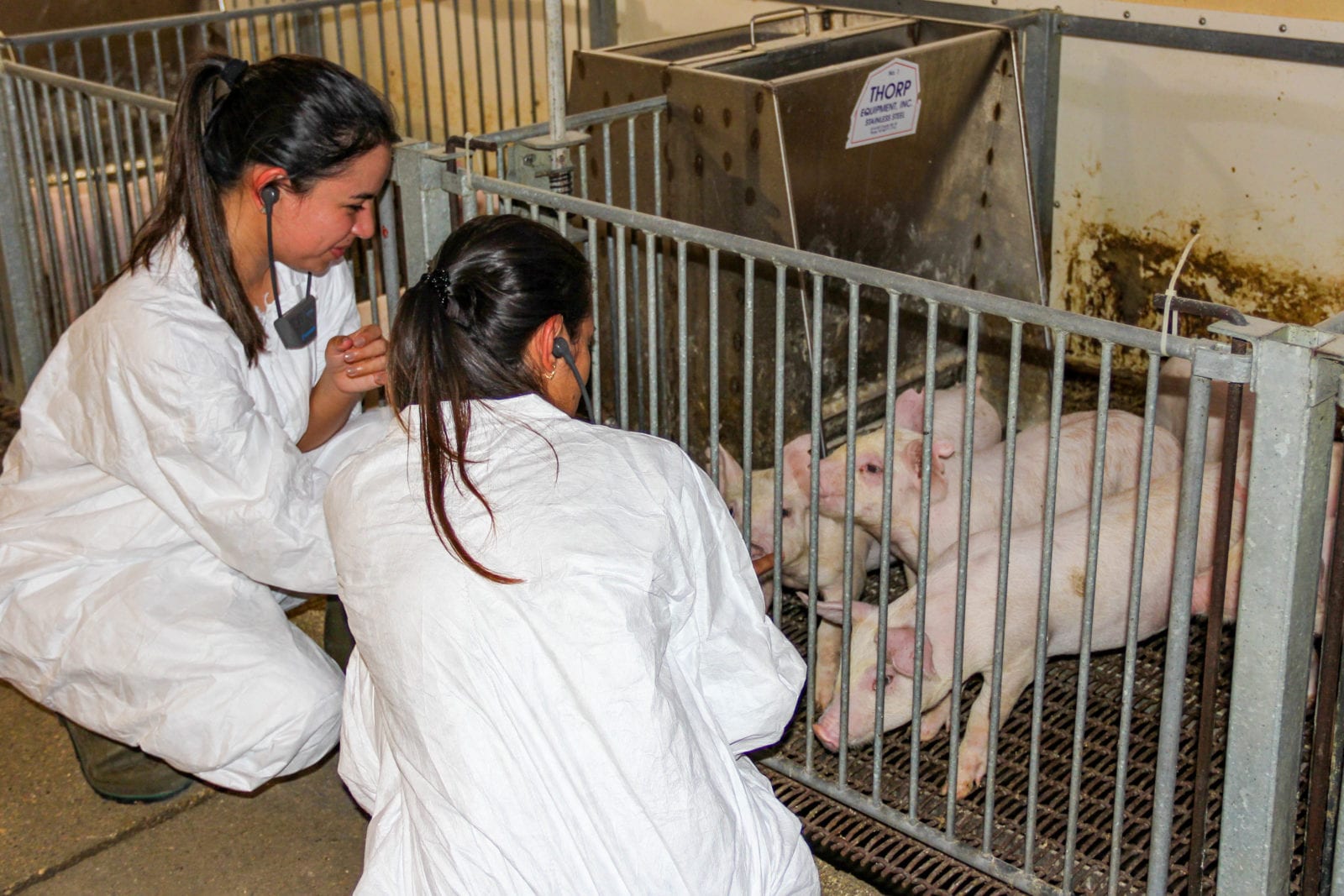Latin American Swine Industry Professionals Attend RAPCO Training at IGP
- Category:
- Animal Utilization
- General News

Professionals in the swine industry gather at the IGP Institute to learn more about nutrition.
With the global consumer demand for pork on the rise, there is a continued need for swine producers to raise efficient pigs that maximize nutritional inputs. In meeting the goal of increased education for the Latin America swine industry, USSEC joined with the IGP Institute to host the Regional Agriculture Production Course (RAPCO) in Swine Nutrition. This training was held July 17-20, 2018 at Kansas State University (KSU).
The course hosted 25 participants from eight different countries including Colombia, Costa Rica, Dominican Republic, Guatemala, Mexico, Nicaragua, Panama, and Peru.
“The IGP Institute has been conducting RAPCO courses since 2011; however, this is the first time that we offered one on swine nutrition. It was a great success as the participants were pleased with the quality of the lectures and tours,” says Carlos Campabadal, IGP Institute feed manufacturing and quality management curriculum manager.
The course focused on many topics including U.S. feed and grain production; U.S. soybean sustainability; dietary fat and pork quality; protein and amino acids concepts in swine feeding; vitamin and mineral requirements for swine; feed additives and antibiotic replacements in swine diets; practical nutrition and management of the developing gilt, gestating sow and lactating sow; the effects of
feed processing on monogastric nutrition; care and management of newborn pig, weanling pigs, and finishing pigs; feed mill security; ingredient quality and the importance of a quality control program; feed safety and swine nutrition; factors affecting feed efficiency in swine; nutrition by immunity; and nutritional differences of soybean meal from different countries.
The lectures were supplemented by tours of the KSU swine farm and the KSU O.H. Kruse Feed Technology Center.
As a land grant university Kansas State conducts a lot of research every year; this information helps keep the professors up to date on the newest information. Vanessa Basurco, nutritionist at San Fernando says, “The information they give us is very important for our countries because in our countries the government and the universities do not have the resources to conduct this kind of research.”
Mr. Campabadal says, “At KSU we have one of the top research groups on swine nutrition and their involvement was key for the success of this course.”

